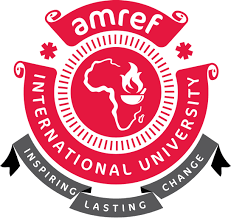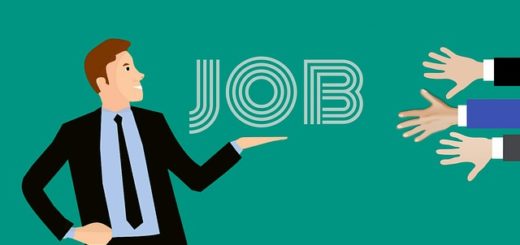Consultancy Services: Terms of Reference for Building a Future; Learning Agenda Facilitation
BUILDING A FUTURE; Improving access to inclusive quality education and sustainable household livelihoods for child victims and those at risk of sex trafficking in Kwale and Kilifi counties.
Impact
Reduced prevalence of trafficking and sexual exploitation among children in Kilifi and Kwale counties
Project Outcome
The project envisions to achieve the impact through the following outcomes:
- Survivors of sexual exploitation and children at risk remain in school
- Schools plays an active roll to identify and monitor cases of child sexual exploitation and report to established referral pathways
- Vulnerable families have improved income
- Older survivors have increased employability skills and are able to earn a sustainable income
- Communities develop positive social norms which discourage child sexual exploitation
Location:
The project is being implemented in 5 towns in Kwale (Ukunda, Lunga Lunga,) and Kilifi (Mtwapa, Watamu, Malindi) being the hotspots for sexual exploitation of children in travel and tourism.
Project Duration:
3rd November 2020 to 31st July 2022
Target Beneficiaries:
The project is directly engaging the following participants;
- 130 younger survivors of sex trafficking and 80 older survivors of sex trafficking
- 40 teachers from 20 schools
- 50 vulnerable households heads
- 210 Community Child protection volunteers
- 600 at risk children in schools
- 20 representatives of private sector businesses including hotel industries, business entities, transport industries and bodabodas.
Implementing Partners:
Terre des Hommes Netherlands (TdH-NL) and Kesho Kenya
1.0 Introduction:
Terre des Hommes Netherlands (TdH-NL) is an international child rights organization committed to stopping child exploitation. In Africa, Terre des Hommes Netherlands works in Kenya, Uganda, Tanzania, Ethiopia and Madagascar .
Our vision is ‘a world in which children are no longer exploited’ and our mission is ‘to prevent child exploitation, remove children from exploitative situations and ensure these children can develop in a safe environment.’
Our vision and mission are inspired and guided by international human rights instruments and standards, in particular the United Nations Convention on the Rights of the Child, the Council of Europe’s Lanzarote Convention, the International Labor Organization Conventions and aligned with achievement of the SDGs, in particular Goals 5, 8 and 16. We launch public and media campaigns to create awareness on our focus issues and carry out local research into the extent and nature of abuse and exploitation of children.
To effectively combat child exploitation, TdH-NL has an integrated approach which is reflected in the organization’s Theory of Change. Identification of key actors in bringing desired change is done through a rigorous analysis of long-term causes and medium-term barriers for change, as well as the potential to bring about change. Generally, these actors consist of the children themselves, their families and communities, the private sector, government, law enforcement agencies, and CSO. Actors are identified for each program, per context.
TdH-NL’s working structure is based on the assumption that a strong and united civil society, engaged in social change and capable of meaningful interaction with duty bearers and beneficiaries, can help the program realize its objectives. Strengthening of civil society is thus an overall, underlying condition for the successful and sustainable implementation of change in the communities TdH-NL works in.
In Kenya, TdH-NL collaborates with Kenyan CSOs and networks in the execution of projects which aim to prevent child exploitation and provide assistance to exploited children. TdH-NL programs are implemented in Nairobi, Nakuru, Coastal, Western and Northern regions of Kenya.
2.0 Project Background:
Building a Future (BAF) is a 21 month project with funding from the Global Fund to End Modern Slavery (GFEMS) with the support of the U.S. Department of State’s Office to Monitor and Combat Trafficking in Persons. The project “Building a Future” aims to reduce prevalence of child sex trafficking in Kilifi and Kwale counties.
Specifically, it focuses on implementing community-based prevention methods; supporting access to quality formal education for younger survivors; vocational skills training, apprenticeships and job skilling for older survivors; and, improvement of household livelihoods for the most vulnerable child sex trafficking survivors. Targeting five known child sex trafficking/exploitation hotspot locations in coastal Kenya: Lunga Lunga (in Lunga Lunga Sub County), Ukunda (in Msambweni Sub County), Watamu in (Kilifi South Sub County), Malindi (in Malindi Sub County) and Mtwapa (in Kilifi North Sub County), the project works to address both the supply of vulnerable individuals and the enabling environment that allows trafficking to persist.
On the supply side, the project aims to reduce the vulnerability of survivors and vulnerable children to re-exploitation. For young survivors, the project will reintegrate participants into formal education with additional support services such as provision of school supplies, access to social protection programs, and training for teachers on how best to identify and report sex trafficking and support survivors. For older children survivors, the project will focus on vocational skills training and facilitate job placement with partner companies. This will include enrolment in vocational training or apprenticeship programs, market-based job placement and continued training opportunities, and coaching and mentoring for survivors. The expected outcome will be the acquisition of relevant skills leading to sustainable employment and livelihoods for the older survivors.
On the enabling environment side, the project aims to build the capacity of the local community to develop positive social norms which discourage sexual exploitation. It also seeks to empower schools to play an active role in monitoring, identifying and reporting cases of child sex trafficking to the established referral pathways.
3.0 Learning Agenda, Purpose and Use
Terres des Hommes Netherlands in partnership with Kesho Kenya through Building a Future project is implementing a learning agenda in collaboration with project participants and stakeholders. It is for this reason that TdH-NL seeks to recruit and engage a knowledge management and learning specialist to help in execution of the project’s learning agenda. This will entail assessing and documenting the learnings as guided by the learning agenda matrix and fill in the knowledge gaps with new evidence to be used in adaptation of project interventions.
The learning agenda is an integral part of the Building a Future Project, developed at design phase, which will help to document critical knowledge on project interventions through targeted research or evaluation activities, some of which would include learning and reflection with key stakeholders. To fulfill this, the Building a Future project’s learning agenda encompasses:
- A set of questions addressing critical knowledge gaps;
- Identified sets of associated activities to answer them.
Moreover, the learning agenda will help to continuously test and explore the project’s theory of change assumptions, generate evidence on the causal links for specific interventions, identify and fill in project knowledge gaps. The knowledge thereof will be used internally for improved programming and externally to influence practice..
Learning Agenda, Objectives and Focus
The key objective of the learning agenda is to continuously identify and address priority questions relevant to the project, document best practices, fill the knowledge gaps and propose ways in strengthening these gaps. It will foster a Collaborating, Learning and Adapting (CLA) culture in the project management cycle.
The learning agenda is envisioned to yield knowledge which informs the following project aspects:
- Impact
- How does vocational training improve life chances?
- How do income generating activities (IGAs) for the most vulnerable families influence life chances of the survivor/children at risk?
- Do survivors and children at risk with improved education have a bigger chance to be withdrawn / prevented from (re)trafficking?
- Sustainability
- What motivates companies to join this program?
- Does their offer match the interests of the SEC victims?
- How do companies themselves define success in joining this program?
- Which specific social norms are mostly influencing individual attitudes and behavior towards child sexual exploitation?
- Who are the key influencers within the structures to sustain change over time?
- What are the conditions for positive changes in social norms to sustain?
- To what extent has the project contributed to influence change in social norms in teachers, parents, children and government stakeholders towards survivors of sexual exploitation services?
- Effectiveness
- Do training on the jobs and apprenticeships lead to jobs for survivors?
- How do employable/employed survivors of sexual exploitation influence other children from (re)trafficking? How does the Child protection Committees (CPCs)/teachers and Administrators training address the required skills for prevention and monitoring and reporting sexual exploitation and sex trafficking cases?
- What do teachers/ administrators see as hindrances/limitations to deliver on their role?
- What do they feel will enhance their likelihood of success?
- Efficiency
- What intervention strategies from Child Rights Clubs in schools & peer support groups contribute most to a positive attitude amongst survivors and children at risk?
- What support do the Child Rights Clubs and peer support groups need to be most effective?
For each of these learning agenda components, the knowledge management and learning specialist will adopt a simple approach action research oriented:
- Literature/document review
- Designing session tools to document the learning
- Data collection and analysis
- Documentation of the learnings through report writing
Learning Agenda Scope and Duration
The Learning agenda will facilitate knowledge and evidence generation on the project’s theory of change and assumptions, leading to ongoing project implementation that is adaptive and responsive to current data informed learnings drawn from the implementation and ploughed back to the current project and future similar projects in terms of effectiveness, efficiency, sustainability and lesson learned/best practices.
Learning and re-adaptation of the implementation is set to happen throughout the life of the project. The consultant will be engaged as the knowledge management and learning specialist throughout the life of the project and will be expected – in a phased approach to support the project learning and reflection over a period of 10 months broken down to a total of
40 Consultancy days broken down into 10 days per quarter As per the schedule below.
Sn.1 Phase one July – September 2021 Number of Days 10 by 15th October 2021
Sn.2 Phase one October – December 2021 Number of Days 10 by 15th January 2022
Sn.3 Phase one January – March 2022 Number of Days 10 by 15th April 2022
Sn.4 Phase one April – June 2022 Number of Days 10 by July 2022
Methodology and Approach:
The project implements a routine monitoring system based on the project’s Logical framework, Core Performance Indicators and Data quality assurance methodology developed at the beginning of the project and corresponding data collection plan to collect data against key outcome indicators.
In collaboration with the TdH-NL M&E team, a detailed methodological plan based around an action research will be developed during the inception phase. The focus will be on the finalization and operationalization of methods and tools to measure the learning. This phase will include a review and update of data collection tools and methods which include:
- Proposed methodology for execution of the learning agenda as specified herein.
- Designing relevant data collection approaches that will support appropriate implementation of the learning agenda
- Propose a detailed way of documenting knowledge and learnings based on the learning agendas.
This will likely include but not limited to:
- Literature and systems review: Review of existing documentations, including; project reports,case stories, the project’s logical framework and monitoring and evaluation data.
- Surveys: Administration of questionnaires.
- Focus Group Discussions: With target groups(Older and younger SEC Survivors, caregivers and CPC members) and other stakeholders to assess implementation experiences and effectiveness, document successes, challenges and lessons learned, and develop recommendations for improvement.
- Key Informant Interviews: Consultations with key project stakeholders, including field and partner staff. Guidance on appropriate stakeholders will be provided by Country and field Office staff.
Deliverables:
The consultant will provide the following deliverables to Terre des Hommes Netherlands within the timeframe stated:
- Inception report; a detailed report on the proposed approach to document the learning agenda will be submitted for approvals prior to field activities; This will include a safeguarding risk assessment and mitigation plan
- Learning Agenda Implementation Plan. The consultant is expected to submit a detailed and well expounded learning agenda work plan for review and approval
- Quarterly learning agenda Summary Reports: submit a summary report of documented learnings per quarter.
- Submit electronic copy of all filled in data collection tools, data analysis scripts and data sets while Strictly adhering to the TdH-NL Child Safeguarding Policy and GFEMS Code of Conduct while conducting research with children
- Consolidated Report: By 15th July 2022 a detailed consolidated report which comprehensively reflects on the learning agenda is submitted to TdH-NL.
b. Terres des Hommes Netherlands:
Terre des Hommes Netherlands will provide :
- Relevant project documents guidance and technical support as required throughout the evaluation;
- Copies of all key background resources identified;
- Comments and feedback on, and approval of, all deliverables within agreed timeline;
- Liaison with the donor for the approval of key deliverables;
- Coordinate with the partner to organize meetings and mobilize participants for the assessment.
- Conduct mobilization of participants where needed.
Consultants Competencies, Experience and Skill requirements:
Applications from individuals or firms are welcome and will be assessed on their ability to demonstrate the following qualifications and competencies:
I. Academic
- The lead researcher should possess a Masters in Social Science; Sociology, Anthropology, and any other relevant field.
- Associates consultants should have a minimum of Bachelor’s Degree
II. Other Requirements
- Proven and demonstrable experience in knowledge and learning management
- Proven experience conducting Learning Agenda Assessments, focusing on child protection, tertiary (TVET and apprenticeship) education, projects will be an added advantage.
- Experience in documenting evidence, knowledge and learnings through action research
- Sound understanding of the UN Convention on the Rights of the Child, Code of Conduct and UN Global Compact.
- A minimum of five years experience working in the research field on children’s issues; child protection, education and skills strengthening programs including child exploitation.
- A strong commitment to and proven experience of utilizing participatory methodologies.
- Knowledgeable in and committed to a Rights Based Approach to development.
- Has proven experience in conducting evaluations and research using various methodologies such as in-depth interviews, Focus Group Discussions etc.
- Experience in working with NGOs, CBOs and beneficiary communities.
- Has excellent communication skills in writing and spoken English and Kiswahili.
- Excellent interpersonal and teamwork skills.
- Excellent analytical and report writing skills (concise and clear reporting, good presentation of data and sources of information)
- Is familiar with social and cultural norms, and attitudes especially in relation to child trafficking, sexual exploitation and abuse, child labor.
- Ability to devote enough time to this assignment and meet deadlines.
- Willingness to travel and flexibility to manage changing circumstances.
Child Safeguarding Measures:
Terre des Hommes Netherlands is a child focused organization which places children’s dignity and safety at the helm of its interventions. We are committed to the United Nation Convention on the Rights of the Child and the Country Child Protection laws. Consultants working for Terre des Hommes Netherlands are required to read, understand, sign and abide by the organization’s Child Safeguarding Policy and expected to uphold the core values of the organization at all times during their period of assignment. All third parties will be subjected to the safeguarding policy, if need be TdH-NL will lead in conducting safeguarding training to the research assistants and the consultant.
Due diligence will be conducted to ascertain the firms/individuals’ compliance with child safeguarding. A certificate of good conduct should be provided by the consultants prior to signing the contract.
Ethical Considerations:
Terre des Hommes Netherlands treats this assessment with a high level of ethical considerations. All participants (interviewers and interviewees) in this assessment are expected to be treated with utmost respect and designer dignity. Participation is voluntary (even when the person has confirmed to participate they are at liberty to opt out of the assessment if they feel uncomfortable). Confidentiality and the rights to privacy of the participants and the data obtained should be respected. Consent and assent will be obtained from the parents/caregivers and the child respectively prior to their participation. As an organization we conform to the Do No Harm principle where our actions and those of our associates at no time should directly or indirectly harm the people we work with.
COVID- 19 Considerations:
The surge in the number of COVID -19 cases is wanting, the government has provided guidelines to which as an organization we are committed in adhering, this should also reflect to our partners whom we have contracted or working together. The evaluation will be conducted with strict compliance to the government regulations, this is to ensure the safety of the project participants, the staff and stakeholders we are working with. It is upon the consultant to clearly illustrate in the technical proposal how the assignment will adhere to COVID-19 throughout the engagement period.
How to Apply
Interested applicants who meet the above criteria to submit Technical and Financial proposals electronically in PDF format, addressed to “The Selection Committee”, with subject line clearly marked “ Learning Agenda Evaluation for Building a Future Project via email on or before 28th October 2021 at 1700 EAT to: recruitment.africa@tdh.nl with the aim to select the evaluator by 11/11/2021 and start the assignment by 18/11/2021.
All applications should include the following:
- Technical proposal (max. 8 pages) outlining their motivation for the application, the methodological approach on how to conduct the assignment, and the resources required.
- A proposed activities schedule/ work plan with a time frame.
- Financial proposal in KES detailing evaluators itemized fees, data collection, logistical and administrative costs.
- A copy of the CV of the evaluator(s) who will undertake the End Term evaluation.
- Recent copies of similar evaluation reports (at minimum two reports) conducted by the applicant and a recommendation letter from an NGO who the consultant has worked with before (not more than 12 months old). The copies must be of similar assignments on learning agenda.








